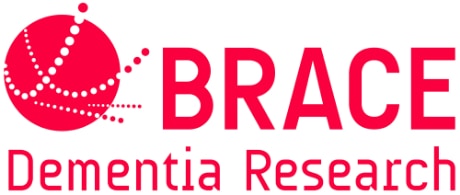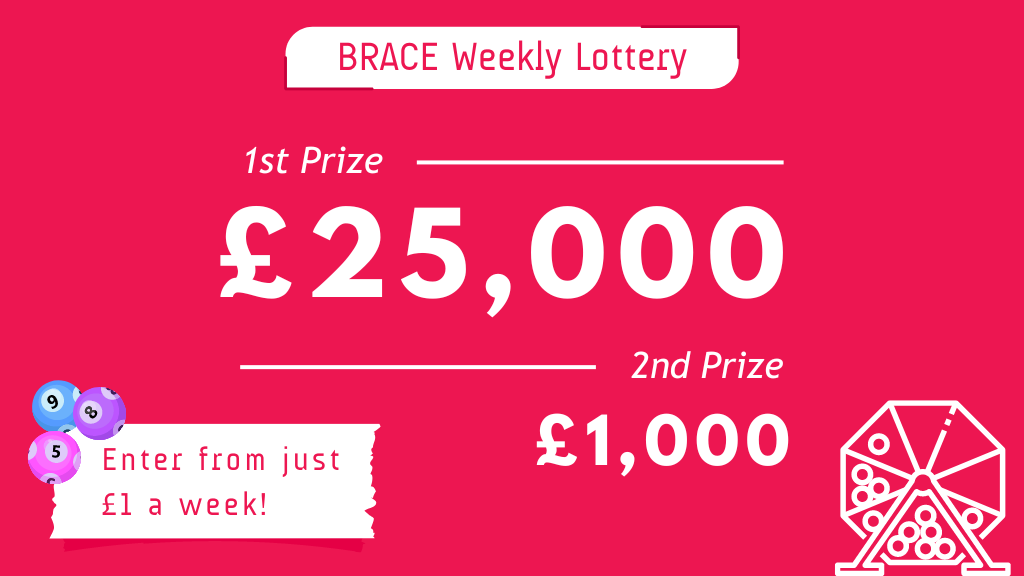BRACE Lottery
Play the BRACE lottery for just £1 per week and you could be £25,000 richer!
The lottery helps fund world class dementia research, taking us all one step closer to a cure for dementia.
How do I sign up?
Signing up can be done in less than 5 minutes. You will need to have you bank details to hand. Simply click the link below and fill in your details.
FAQs
How does the lottery work?
6 numbers between 1 and 49 are randomly selected each week.
If all 6 numbers are matched, you win £25,000 and if you match 5 numbers you will win £1,000. If more than one entry matches 5 or 6 numbers the prize pot will be split equally between each players.
How easy is it to win?
There is a 1 in 80 chance of you winning each week.
How many prizes are there?
Each week you have the opportunity to win one of 37 cash prizes: 1st Prize: £25,000, 2nd Prize: £1,000 and 35 guaranteed Runner-up Prizes: 5 x £20, 10 x £10 and 20 x £5
How often does the draw take place?
Every week on a Friday.
How does giving money away support dementia research?
The lottery prizes do not come from the charity's funds. Your ticket is helping to defeat dementia!
Good to know
The prizes are managed, insured, and supplied by our lottery manager. This means money for research is not spent on the lottery prizes and big prizes can be offered! BRACE shares the lottery love with other charities in the Affinity family. Winners are drawn, like in a syndicate, from players of all Affinity charity lotteries.
Breaking that down:
First and Second prizes
Insured by Woods Valldata. Paid out to players when their numbers match those drawn. The prize is split if more than one player has the same winning numbers.
Runners-up prizes
Guaranteed cash prizes provided by Woods Valldata means there’ll be winners every week. With Affinity BRACE share the lottery love with other charities in the Affinity family. Winners are drawn from the combined players of all Affinity lotteries.
This means BRACE can keep admin costs to a minimum.
Thank you for supporting dementia research.
Share this page

